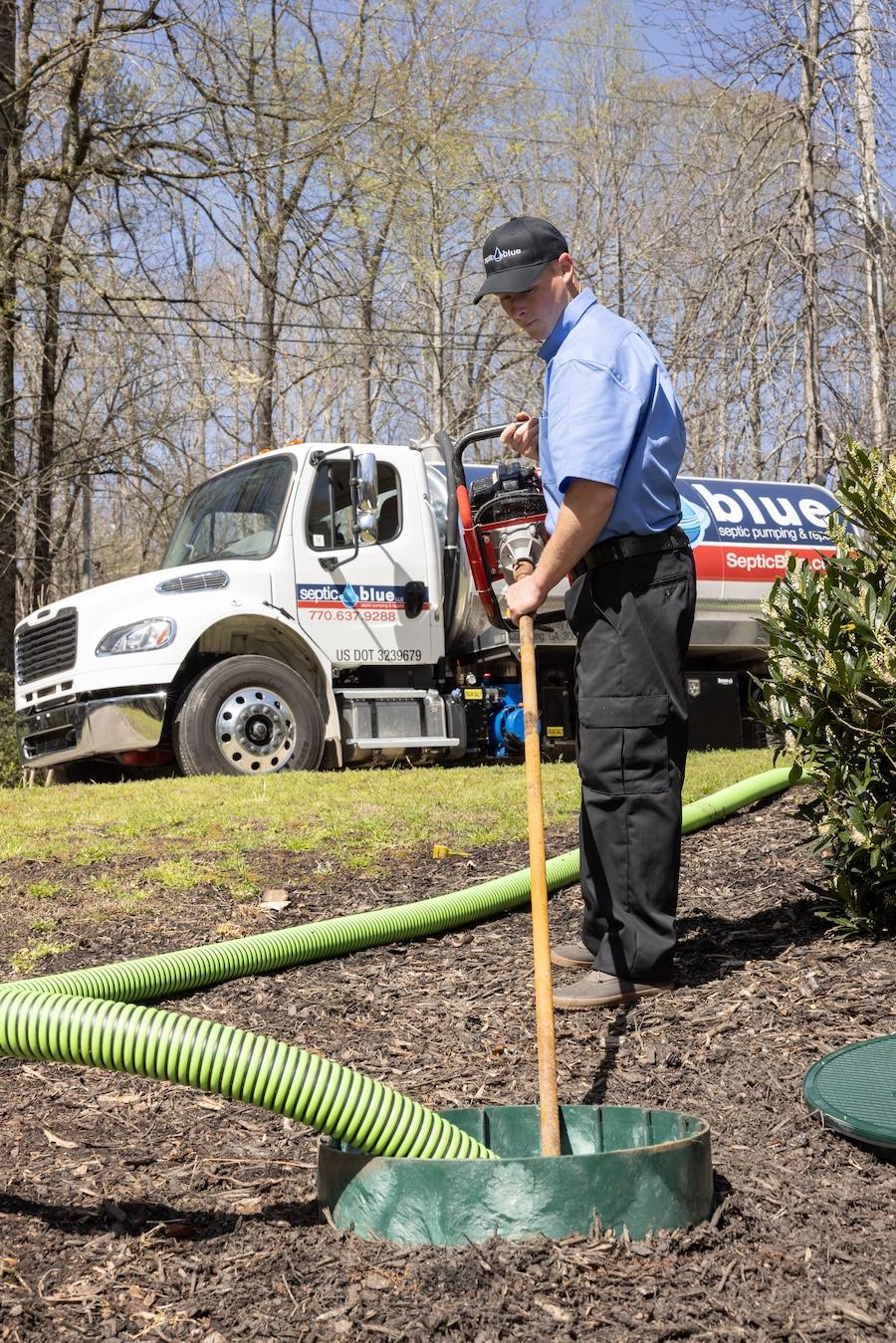Free Septic System Inspection ($99 Value) Free enzyme treatment, Financing Available
Request Service Now!
407-565-7044Free Septic System Inspection ($99 Value) Free enzyme treatment, Financing Available
Request Service Now!
407-565-7044
Anaerobic and aerobic bacteria play central roles in the functionality and effectiveness of septic tanks. Sadly, these vital bacteria can succumb to harsh chemicals, antibiotics, and medications flushed down the drain. Moreover, overloading the septic system with excessive water and extreme temperatures can slow down or even kill the bacteria.
Septic tank additives are marketed to supplement the bacterial activity in the septic system, but are they effective and worth the money? In this brief article brought to you by Septic Blue, we give you a quick rundown. Septic Blue is an established and insured septic company with uniformed septic specialists.
Septic systems rely on a delicate balance of bacteria to treat waste and wastewater effectively. Anaerobic bacteria in the septic tank installation break down organic matter, converting solids into liquids and gases. This process reduces the volume of sludge and scum in the tank. In the drain field, aerobic bacteria further treat the effluent by consuming remaining organic matter as it percolates through the soil.
A professional septic tank installation involves adding the right amount of beneficial bacteria, but routine maintenance and proper usage is crucial in sustaining these diligent workhorses. Here are some threats to the bacteria to remember:
Septic tank additives come in various forms, including powders, liquids, and dissolvable packets. They often contain enzymes, bacteria cultures, or chemical agents that claim to enhance bacterial activity, reduce odors, break down solids more effectively, and maintain a healthier septic system environment.
While manufacturers claim that septic tank additives can improve system performance, the scientific community and regulatory bodies like the Environmental Protection Agency (EPA) remain skeptical. Studies on the effectiveness of these additives have yielded mixed results.
Studies have shown varying degrees of effectiveness, with some additives providing minimal benefits or even causing harm to the system. Some additives may contain chemicals that can harm the natural balance of bacteria in the septic tank. Others might contribute to increased solids accumulation or interfere with the natural decomposition processes.
The EPA and other regulatory agencies caution against relying on additives as a substitute for proper septic system maintenance. They recommend regular septic tank pumping, proper waste disposal practices, and avoiding excessive water use
While anecdotal evidence and testimonials from users may suggest benefits from using septic tank additives, the effectiveness of additives largely depends on various factors. Routine maintenance and septic tank cleaning are fundamental in sustaining your septic system’s efficacy.
Whether it’s time for periodic maintenance or you need emergency septic tank repair, the professionals at Septic Blue are here to help. Call or message us at any time of the day to get in touch.
Septic systems play a crucial role in managing waste for residential and commercial properties without public sewer lines. While most systems are designed to last for decades,…
A failing septic system is a nightmare that can cost thousands of dollars to repair and leave your property unusable until the problem is fixed. The frustrating…
Orlando winters may not bring freezing temperatures like the rest of the country, but that doesn't mean your septic system gets a free pass during the cooler…
Is sewage backing up into multiple drains in your house? Have you spotted mushy spots near your septic tank? Is there a strong sewage smell near your…